Gerdil 40, also known as Esomeprazole 40 mg, is a medication commonly prescribed to manage gastrointestinal conditions. This proton pump inhibitor (PPI) works by reducing the production of acid in the stomach, aiding in the treatment of various digestive issues.
What is Gerdil 40?
Gerdil 40, comprising Esomeprazole 40 mg, is a proton pump inhibitor (PPI) medication used to treat gastrointestinal conditions like gastroesophageal reflux disease (GERD), peptic ulcers, and Zollinger-Ellison syndrome. It functions by reducing stomach acid production, relieving symptoms such as heartburn, acid reflux, and ulcer-related discomfort. This medication helps in healing existing ulcers and preventing their recurrence, offering relief and improved quality of life for individuals affected by acid-related issues. Gerdil 40’s efficacy lies in its ability to regulate gastric acid production, providing comfort and aiding in the treatment of various digestive disorders.
How does gerdil 40?
Gerdil 40, powered by its active component Esomeprazole, operates as a potent and targeted solution in managing gastrointestinal issues. Its mechanism revolves around the inhibition of proton pumps in the stomach lining, thereby curbing the excessive production of gastric acid.
At the core of its action lies the understanding of proton pumps as integral in the release of stomach acid. Esomeprazole, a proton pump inhibitor (PPI), intervenes in this process by binding to these pumps, effectively shutting down their acid-producing function. This inhibition is selective and sustained, ensuring a prolonged reduction in acid secretion.
By significantly lowering acid levels, Gerdil 40 brings about multifaceted relief. It directly alleviates the discomfort associated with conditions like gastroesophageal reflux disease (GERD), characterized by the backward flow of stomach acid into the esophagus, causing heartburn and irritation. The reduction in acid production effectively aids in the healing and prevention of peptic ulcers, fostering the restoration of the gastrointestinal tract.
This precision-targeted action not only addresses the immediate symptoms but also plays a crucial role in preventing their recurrence. Through consistent use, Gerdil 40 not only provides relief but also supports the healing process, allowing the affected tissues time to recover and regenerate, reducing the likelihood of future complications.
Moreover, by controlling excess acid production, Gerdil 40 helps individuals regain a sense of normalcy in their daily lives. It minimizes the interruptions caused by acid-related discomfort, allowing for better sleep, improved eating experiences, and enhanced overall well-being.
The positive impact of Gerdil 40 extends beyond symptom relief; it empowers individuals by affording them the opportunity to manage and overcome the challenges posed by acid-related gastrointestinal issues. Its proactive approach in regulating acid production not only treats the symptoms but also promotes healing and prevents potential complications, contributing to a better quality of life for those affected.
Benefits of Using Gerdil 40
The utilization of Gerdil 40, driven by its active component Esomeprazole, offers a range of substantial benefits for individuals grappling with gastrointestinal concerns:
- Effective Acid Reduction: Gerdil 40 is remarkably proficient in reducing gastric acid levels, providing relief from the discomfort caused by excessive acid production. This alleviates symptoms like heartburn, acid reflux, and related irritation, fostering a more comfortable daily experience.
- Ulcer Healing and Prevention: By curbing acid secretion, Gerdil 40 aids in the healing process of peptic ulcers in the stomach and upper intestine. Furthermore, its ongoing use serves as a preventive measure, reducing the likelihood of ulcer recurrence, thereby promoting a healthier gastrointestinal system.
- Enhanced Gastrointestinal Health: Beyond symptom alleviation, Gerdil 40 actively contributes to the restoration of gastrointestinal health. Its ability to regulate acid levels supports the healing of affected tissues, facilitating the return to normal functioning.
- Improved Quality of Life: The relief offered by Gerdil 40 extends beyond physical comfort. By managing acid-related issues effectively, it allows individuals to reclaim control over their lives, fostering better sleep, improved eating experiences, and reduced interruptions from digestive discomfort.
- Proactive Symptom Management: Gerdil 40’s consistent use not only addresses existing symptoms but also plays a pivotal role in preventing their recurrence. This proactive approach empowers individuals by providing a reliable means to manage and prevent the discomfort associated with acid-related gastrointestinal conditions.
- Long-Term Relief: Its sustained action ensures prolonged relief, allowing individuals to experience consistent comfort and freedom from the disruptive symptoms associated with excess stomach acid.
Gerdil 40, through its multifaceted benefits, stands as a valuable resource in the effective management, treatment, and prevention of acid-related gastrointestinal concerns, fostering improved well-being and a better quality of life for those affected.
When to Use Gerdil 40
Gerdil 40, containing Esomeprazole, is strategically employed in various scenarios to address and manage gastrointestinal conditions associated with excessive stomach acid production. Here’s when it’s typically recommended for use:
- Gastroesophageal Reflux Disease (GERD): Individuals experiencing frequent heartburn, regurgitation, or other symptoms of GERD benefit from Gerdil 40. It’s often used when these symptoms significantly impact daily life or when other measures haven’t provided adequate relief.
- Peptic Ulcers: Gerdil 40 aids in the treatment of peptic ulcers in the stomach or the upper part of the intestine. It promotes healing of existing ulcers and prevents the formation of new ones.
- Zollinger-Ellison Syndrome: This rare condition leads to excessive stomach acid production. Gerdil 40 is used as part of the treatment plan to manage and control the increased acid secretion associated with this syndrome.
- Chronic Acid-related Discomfort: In cases where persistent or chronic acid-related discomfort affects an individual’s quality of life, Gerdil 40 might be prescribed to manage and alleviate these symptoms effectively.
The decision to use Gerdil 40 is typically made in consultation with a healthcare professional. They assess the severity of symptoms, individual medical history, and the specific condition to determine if Gerdil 40 is suitable and necessary for managing the underlying gastrointestinal issues associated with excessive stomach acid.
Read more : What is Otozambon, and its uses?
Dosage and Precautions for Gerdil 40
The dosage and precautions associated with Gerdil40 (Esomeprazole 40 mg) are crucial aspects to consider for safe and effective usage. However, it’s imperative to consult a healthcare professional for personalized guidance. Here’s a general overview:
- Dosage:
- Prescribed Dosage: The typical recommended dosage for Gerdil 40 is once daily, usually before a meal.
- Individual Adjustment: Dosage adjustments might be necessary based on the severity of the condition, individual response, and the specific gastrointestinal issue being treated.
- Consistency: It’s essential to take Gerdil 40 regularly at the prescribed time to ensure its optimal effectiveness in managing acid-related conditions.
- Precautions:
- Medical History Disclosure: Inform your healthcare provider about any existing medical conditions, especially related to the liver or kidneys. This helps in determining the appropriateness of Gerdil 40 and adjusting the dosage accordingly.
- Medication Interactions: Disclose all medications, including over-the-counter drugs, supplements, and herbal remedies, to your doctor. Certain medications might interact with Gerdil 40, potentially affecting its efficacy or causing adverse reactions.
- Pregnancy and Breastfeeding: Consult a healthcare professional before using Gerdil 40 during pregnancy or while breastfeeding. Though generally considered safe, it’s essential to weigh the potential benefits against any possible risks.
- Long-term Usage: Prolonged use of Gerdil 40 might have implications. Your healthcare provider can guide you on the duration of treatment and any monitoring required during extended use.
- Allergic Reactions: If you’ve experienced allergic reactions to medications in the past or are known to be allergic to Esomeprazole or its components, inform your healthcare provider promptly.
Following these precautions and adhering to the prescribed dosage is essential for ensuring the safe and effective use of Gerdil40 in managing gastrointestinal conditions associated with excessive stomach acid production. Always consult a healthcare professional for personalized guidance and dosage adjustments based on your specific medical needs.
Potential Side Effects of Gerdil 40
While generally well-tolerated, Gerdil40 (Esomeprazole 40 mg) might have potential side effects. It’s important to note that not everyone experiences these side effects, and their severity can vary. Here are some potential side effects associated with Gerdil40:
- Headache: Mild to moderate headaches might occur initially after starting the medication. These usually subside as the body adjusts to the treatment.
- Nausea or Vomiting: Some individuals might experience feelings of nausea or occasional episodes of vomiting, especially during the early stages of treatment.
- Abdominal Pain or Discomfort: This might manifest as discomfort or pain in the stomach region. It’s usually mild and transient.
- Diarrhea or Constipation: Changes in bowel habits, such as diarrhea or constipation, might occur. These symptoms typically resolve as the body adapts to the medication.
- Fatigue or Dizziness: Some individuals might experience feelings of fatigue or occasional dizziness, which usually diminish over time.
- Allergic Reactions: Although rare, allergic reactions to Gerdil40 can occur. Symptoms might include skin rash, itching, swelling, dizziness, or difficulty breathing. Seek immediate medical attention if you experience any signs of an allergic reaction.
It’s important to communicate any side effects to your healthcare provider, especially if they persist, worsen, or cause concern. Additionally, severe side effects are rare but might include severe allergic reactions or uncommon adverse effects on the liver or kidneys. Seeking immediate medical attention for any unusual symptoms is crucial in such cases.
Always follow the prescribed dosage and consult your healthcare professional if you have any concerns or experience unexpected reactions while using Gerdil 40. They can provide guidance, address concerns, and make any necessary adjustments to ensure your safety and comfort during treatment.
Frequently Asked Questions (FAQs) about gerdil 40
Is gerdil 40 available in the UAE?
As of my last update in January 2022, Gerdil 40, containing Esomeprazole 40 mg, was available in pharmacies across the UAE. However, medication availability can sometimes change due to various factors, including regulatory updates or changes in distribution.
For the most current and accurate information regarding the availability of Gerdil 40 in the UAE, I recommend checking with local pharmacies or consulting a healthcare professional or pharmacist in the UAE. They can provide up-to-date information on the availability and potential alternatives if needed.
What is gerdil 40used for?
Gerdil40, also known as Esomeprazole 40 mg, is primarily used to treat various gastrointestinal conditions associated with excessive stomach acid production. Its main uses include:
- Gastroesophageal Reflux Disease (GERD): Gerdil 40 is effective in managing GERD, a condition where stomach acid frequently flows back into the esophagus, causing heartburn, regurgitation, and irritation.
- Peptic Ulcers: It aids in the treatment and healing of peptic ulcers in the stomach and upper part of the intestine. Gerdil 40 helps in both healing existing ulcers and preventing the formation of new ones.
- Zollinger-Ellison Syndrome: This rare condition involves excessive acid production in the stomach. Gerdil 40 is used as part of the treatment plan to manage and control the increased acid secretion associated with this syndrome.
In essence, Gerdil40 works by reducing the production of stomach acid, thereby alleviating symptoms associated with these conditions and promoting the healing of the gastrointestinal tract. It’s important to use Gerdil 40 as prescribed by a healthcare professional for the specific condition it’s intended to treat.
How often to take Gerdil 40?
The recommended dosage frequency for Gerdil40 (Esomeprazole 40 mg) typically involves taking it once daily. The specific timing of dosage administration may vary depending on individual circumstances and the condition being treated. Generally, it is advisable to take Gerdil 40 before a meal. However, it’s crucial to follow the instructions provided by your healthcare professional regarding the dosage and frequency tailored to your specific medical condition.
What is Esomeprazole 40 mg used for?
Esomeprazole 40 mg is the active ingredient in Gerdil40, belonging to a class of medications called proton pump inhibitors (PPIs). Esomeprazole is primarily used to:
- Manage Gastroesophageal Reflux Disease (GERD): It helps alleviate symptoms such as heartburn, acid reflux, and irritation caused by the backward flow of stomach acid into the esophagus.
- Heal Peptic Ulcers: Esomeprazole aids in the healing of ulcers in the stomach or the upper part of the intestine, as well as in preventing their recurrence.
- Treat Zollinger-Ellison Syndrome: In cases of this rare condition involving excessive stomach acid production, Esomeprazole helps manage and control the heightened acid secretion.
Esomeprazole 40 mg effectively reduces the production of stomach acid, providing relief from associated symptoms and aiding in the healing process of gastrointestinal conditions related to excess acid. It’s crucial to use Esomeprazole 40 mg as directed by a healthcare professional and to follow the prescribed dosage and schedule for optimal effectiveness and safety.


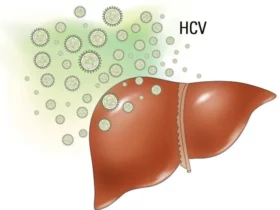

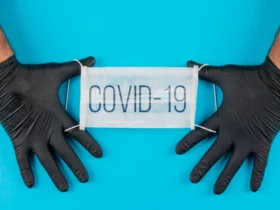

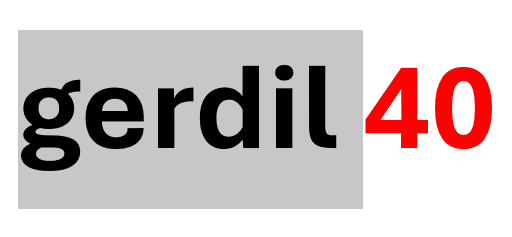
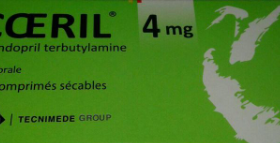
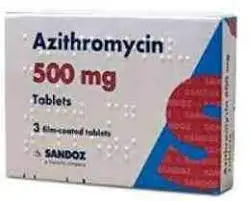





Leave a Reply